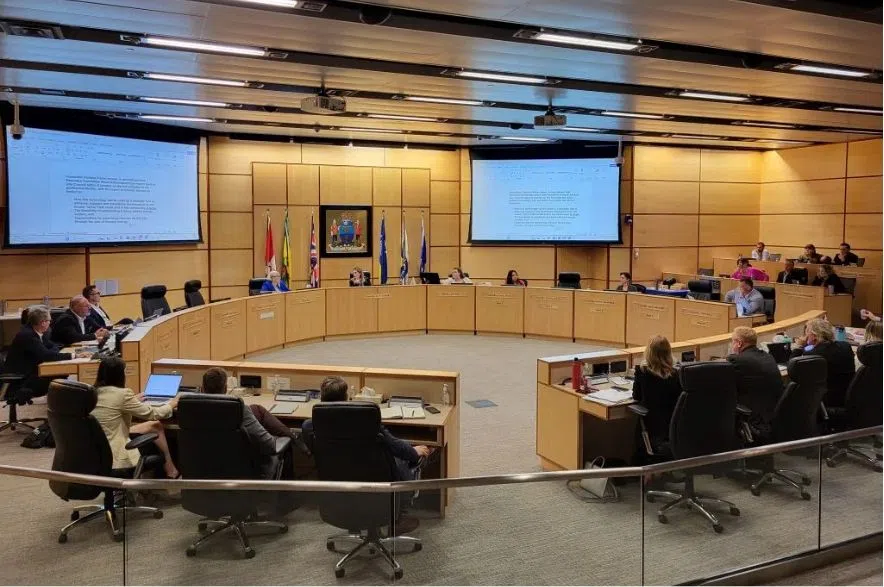Regina’s city council passed an early tentative recommendation for the city’s 2026 budget on Wednesday.
Council voted 8-1 in favour of a recommendation from city administration to include a one-time 2.32 per cent mill rate increase for the ongoing water network expansion project and several other unfunded development charge projects.
Read more:
- New construction tracking map to help during 2025 construction season
- Construction on water network to disrupt traffic flow on Ring Road
- Regina Launches $282 Million 2024 Construction Season
Ward 8 Coun. Shanon Zachidniak voted against the measure, and Ward 5 Coun. Sarah Turnbull was away.
According to Daren Anderson, the city’s chief financial officer, the proposed increase would cost the average household about $30 more per year.
Anderson explained that the 2.32 per cent hike would serve as a one-time increase and would hold for 30 years. He also stated that the decision isn’t final yet, and will need approval once the full 2026 budget is finalized later this year.
“If there is another way to fund (this) between now and budget time, that’s definitely an option,” Anderson said.
“We were just giving you what an indicative mill rate would be for this specific debt and interest payments.”
The mill rate increase will go toward a sinking fund, which is a gradual repayment of debt, that will ensure $115 million is available in 30 years to fund the principal.
Council also unanimously approved a bylaw to allow for the borrowing to take place.
The water network project began in 2023 with the intention of accommodating Regina’s current and future growth. The project will develop new water storage reservoirs, a new water pumping station and a new 8.4 km water supply main.
Council heard from one delegate during the meeting. Jim Elliott said it was unsustainable for the city to continuously borrow money.
Elliott said the city and its citizens need to be more conscious about water use and conservation.
“This is a problem that we’ve created, and I think we need to stop creating our own problems, and in fact, creating more problems for residents of this city,” Elliott said.
“We need to be conserving our precipitation and reducing our demand for water from the Buffalo Pound Treatment Plant.”
Elliott found a sympathetic ear from Ward 10 Coun. Jason Mancinelli, who said some of Elliott’s suggestions could help save millions of dollars. However, Mancinelli also stressed the importance of completing the project, not just for Regina’s current population, but for those living in the city years down the line.
“This (recommendation) came about because the decision to provide clean water to the residents of Regina with proper pressure and enough water for everyone for some time to come – was put off, literally for decades. That’s why there was a problem with the pressure in the east for so long,” Mancinelli said.
“We should build it big enough for today with the expectation it’s going to have (a) need tomorrow. But that doesn’t mean that we have to ignore water security or better habits with the use of our water, because this is hundreds of millions of dollars.”
Since the funding decision increase wouldn’t be finalized until December, Coun. Zachidniak said she voted against it because she wanted to see what the full budget looked like before dedicating a specific mill rate to it.











